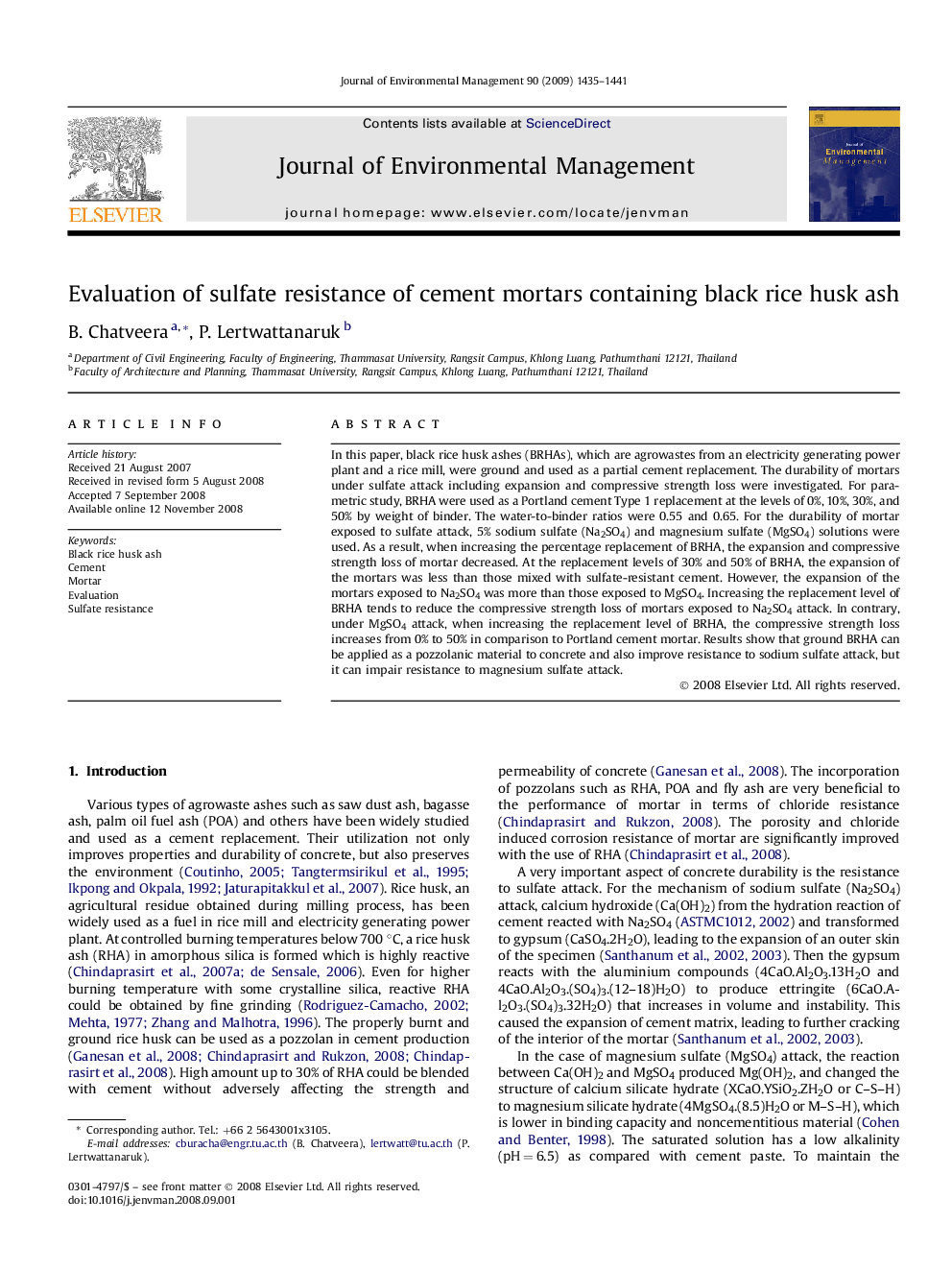| Article ID | Journal | Published Year | Pages | File Type |
|---|---|---|---|---|
| 1057961 | Journal of Environmental Management | 2009 | 7 Pages |
In this paper, black rice husk ashes (BRHAs), which are agrowastes from an electricity generating power plant and a rice mill, were ground and used as a partial cement replacement. The durability of mortars under sulfate attack including expansion and compressive strength loss were investigated. For parametric study, BRHA were used as a Portland cement Type 1 replacement at the levels of 0%, 10%, 30%, and 50% by weight of binder. The water-to-binder ratios were 0.55 and 0.65. For the durability of mortar exposed to sulfate attack, 5% sodium sulfate (Na2SO4) and magnesium sulfate (MgSO4) solutions were used. As a result, when increasing the percentage replacement of BRHA, the expansion and compressive strength loss of mortar decreased. At the replacement levels of 30% and 50% of BRHA, the expansion of the mortars was less than those mixed with sulfate-resistant cement. However, the expansion of the mortars exposed to Na2SO4 was more than those exposed to MgSO4. Increasing the replacement level of BRHA tends to reduce the compressive strength loss of mortars exposed to Na2SO4 attack. In contrary, under MgSO4 attack, when increasing the replacement level of BRHA, the compressive strength loss increases from 0% to 50% in comparison to Portland cement mortar. Results show that ground BRHA can be applied as a pozzolanic material to concrete and also improve resistance to sodium sulfate attack, but it can impair resistance to magnesium sulfate attack.
